Product Description
Help people with dementia stay energized and connected to their lifelong interests using this strength-based approach to activity planning!
Developed for both professional and family caregivers, the Connections Activity Program is a strength-based intervention that includes tools and step-by-step instructions for matching a person’s level of cognitive function and current abilities with activities tailored to past interests. It helps reduce caregiver stress by explaining how to break down and structure activities so a person can engage in them as independently as possible. The Connections Activity Program shows how, with proper support, people with dementia care enjoy meaningful engagement and improved emotional well-being.
Learn to use the Connections tools to
- Gather information about a person’s past and present interests and hobbies
- Understand a person’s current level of cognitive function
- Identify remaining strengths and abilities
- Individualize activities to promote maximum involvement
- Use verbal and visual cues to support the person’s ability to self-initiate and engage
- Adapt activities to each level of cognitive function
This resource includes detailed case examples that illustrate how the Connections approach works as well as sample intervention guides that walk through how to implement specific activities and adapt them for people with early-, middle-, and late-stage dementia.
DOWNLOADABLE RESOURCES INCLUDE:
- Conversation Starters
- Leisure Interest Survey
- Cognitive Function Checklist
- Information Summary
What makes the Connections approach unique?
Developed collaboratively by professionals with expertise in therapeutic recreation, gerontology, developmental psychology, and speech-language pathology, the approach’s core principles are based on theoretical underpinnings from three practice fields: therapeutic recreation, Montessori-Based Dementia Programming™, and cognitive intervention.
Downloadable Resources
About the Authors
Acknowledgments
Foreword, by Steven T. DeKosky, M.D.
Preface
Introduction
- The Connections Approach
- Connections Field Testing
Chapter 1. Overview of the Connections Activity Program
- Connections Activity Intervention Process and Tools
Chapter 2. Preparing for a Successful First Visit
- Understanding Dementia
- A Person-Centered Approach
- Emotional Intelligence
- Communication through the Dementia Stages
- Planning for Successful Connections
Chapter 3. Making the Connection and Assessing the Person’s Needs
- Conversation Starters
- Leisure Interest Survey
- Cognitive Function Checklist
- Information Summary
Chapter 4. Connections Activity Selection and Setup
- Selecting the Appropriate Activity
- Modifying the Environment
- Setting Up the Activity Center
- Setting Up the Central Organizer
- Using Central Organizers to Support People with Dementia
Chapter 5. Connections in Practice: Case Examples
- Case #1: Dr. Bikoff
- Case #2: Mrs. Matthews
- Case #3: Mr. Stuart
Chapter 6. Activity Intervention Guides
Appendix: Connections Activity Program Forms
- Leisure Interest Survey
- Cognitive Function Checklist
- Information Summary
References
Resources
 Ellen Bikoff-Phipps, CTRS, MSG, is Vice President of Programs & Services for the Alzheimer’s Association, Central & Western Virginia Chapter, as well as an adjunct faculty member at Virginia Commonwealth University, Department of Gerontology. She received her bachelor’s in therapeutic recreation from the University of Colorado, at Boulder, and her master’s in gerontology from Virginia Commonwealth University. She also received training certification in England as a Montessori teacher. She specializes in creative therapeutic design for persons diagnosed with Alzheimer’s disease and related dementia, including having played a key role in the creation of Arts Fusion, a program based on Meet Me at MOMA in New York City. Before joining the Alzheimer’s Association, she served as Director of Adult Day Centers both in Charlottesville, VA, and Somerset, England, providing creative and innovative approaches to care. In 1997, she was instrumental in initiating one of the first intergenerational Montessori adult day centers in Charlottesville, VA, a combination adult day and childcare center.
Ellen Bikoff-Phipps, CTRS, MSG, is Vice President of Programs & Services for the Alzheimer’s Association, Central & Western Virginia Chapter, as well as an adjunct faculty member at Virginia Commonwealth University, Department of Gerontology. She received her bachelor’s in therapeutic recreation from the University of Colorado, at Boulder, and her master’s in gerontology from Virginia Commonwealth University. She also received training certification in England as a Montessori teacher. She specializes in creative therapeutic design for persons diagnosed with Alzheimer’s disease and related dementia, including having played a key role in the creation of Arts Fusion, a program based on Meet Me at MOMA in New York City. Before joining the Alzheimer’s Association, she served as Director of Adult Day Centers both in Charlottesville, VA, and Somerset, England, providing creative and innovative approaches to care. In 1997, she was instrumental in initiating one of the first intergenerational Montessori adult day centers in Charlottesville, VA, a combination adult day and childcare center.
 Barbara A. Braddock, Ph.D., CCC-SLP, holds degrees in communicative disorders and developmental psychology from the University of Missouri–Columbia. She has more than 20 years of experience in the diagnosis and treatment of people with communication disorders. In 2007, she joined the Department of Human Services in the Curry School of Education at the University of Virginia (UVa). At UVa, Dr. Braddock and Ellen Bikoff-Phipps mentored Jefferson Public Citizens (JPC) student awardees engaged in service-oriented research projects targeting persons with cognitive impairment. In 2010, she joined the faculty of Saint Louis University School of Medicine, where she now teaches as Assistant Professor in the Department of Pediatrics, and Adjunct Professor in the Department of Communication Sciences and Disorders. She also serves as Associate Coordinator of the American Speech-Language-Hearing Association Special Interest Group 12, Augmentative and Alternative Communication.
Barbara A. Braddock, Ph.D., CCC-SLP, holds degrees in communicative disorders and developmental psychology from the University of Missouri–Columbia. She has more than 20 years of experience in the diagnosis and treatment of people with communication disorders. In 2007, she joined the Department of Human Services in the Curry School of Education at the University of Virginia (UVa). At UVa, Dr. Braddock and Ellen Bikoff-Phipps mentored Jefferson Public Citizens (JPC) student awardees engaged in service-oriented research projects targeting persons with cognitive impairment. In 2010, she joined the faculty of Saint Louis University School of Medicine, where she now teaches as Assistant Professor in the Department of Pediatrics, and Adjunct Professor in the Department of Communication Sciences and Disorders. She also serves as Associate Coordinator of the American Speech-Language-Hearing Association Special Interest Group 12, Augmentative and Alternative Communication.

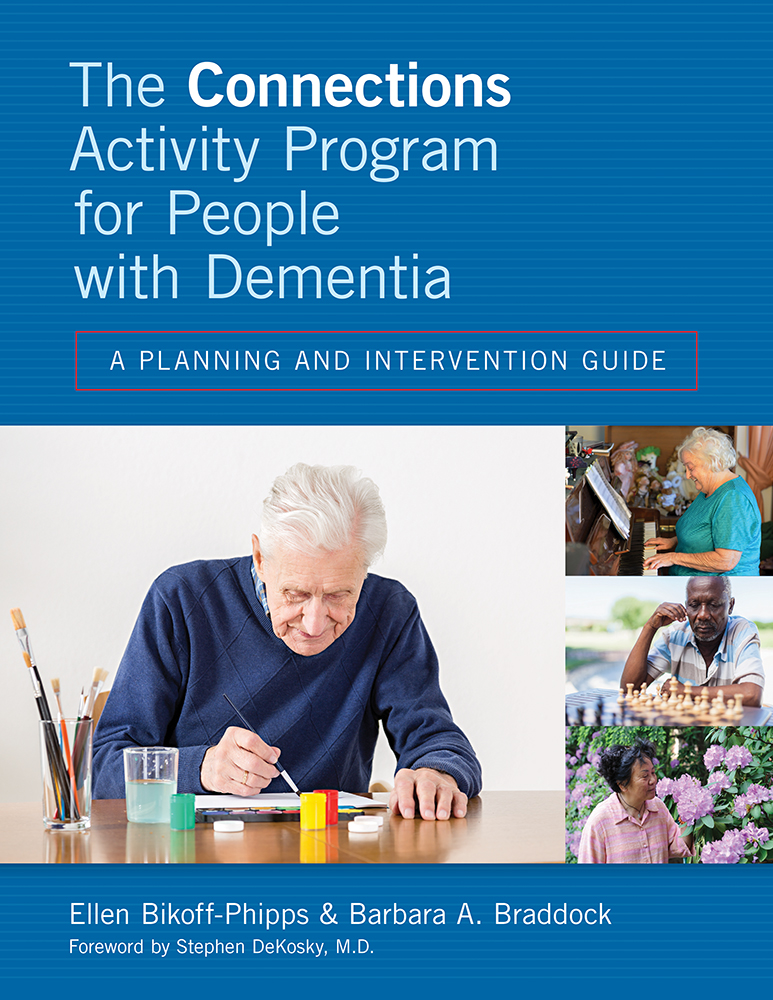
 Ellen Bikoff-Phipps, CTRS, MSG, is Vice President of Programs & Services for the Alzheimer’s Association, Central & Western Virginia Chapter, as well as an adjunct faculty member at Virginia Commonwealth University, Department of Gerontology. She received her bachelor’s in therapeutic recreation from the University of Colorado, at Boulder, and her master’s in gerontology from Virginia Commonwealth University. She also received training certification in England as a Montessori teacher. She specializes in creative therapeutic design for persons diagnosed with Alzheimer’s disease and related dementia, including having played a key role in the creation of Arts Fusion, a program based on Meet Me at MOMA in New York City. Before joining the Alzheimer’s Association, she served as Director of Adult Day Centers both in Charlottesville, VA, and Somerset, England, providing creative and innovative approaches to care. In 1997, she was instrumental in initiating one of the first intergenerational Montessori adult day centers in Charlottesville, VA, a combination adult day and childcare center.
Ellen Bikoff-Phipps, CTRS, MSG, is Vice President of Programs & Services for the Alzheimer’s Association, Central & Western Virginia Chapter, as well as an adjunct faculty member at Virginia Commonwealth University, Department of Gerontology. She received her bachelor’s in therapeutic recreation from the University of Colorado, at Boulder, and her master’s in gerontology from Virginia Commonwealth University. She also received training certification in England as a Montessori teacher. She specializes in creative therapeutic design for persons diagnosed with Alzheimer’s disease and related dementia, including having played a key role in the creation of Arts Fusion, a program based on Meet Me at MOMA in New York City. Before joining the Alzheimer’s Association, she served as Director of Adult Day Centers both in Charlottesville, VA, and Somerset, England, providing creative and innovative approaches to care. In 1997, she was instrumental in initiating one of the first intergenerational Montessori adult day centers in Charlottesville, VA, a combination adult day and childcare center.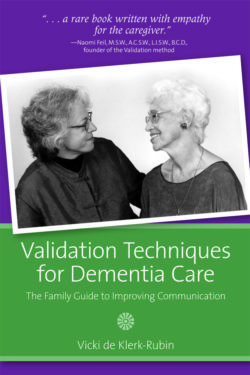
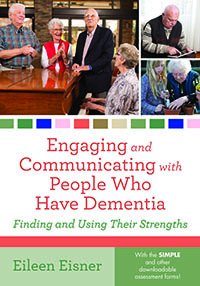
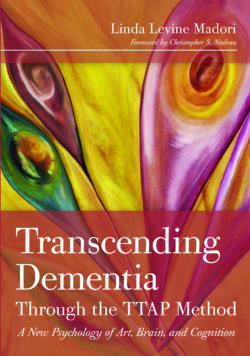
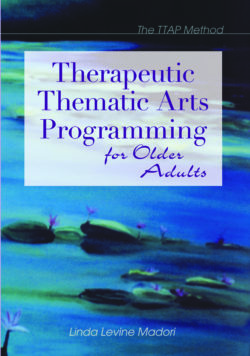
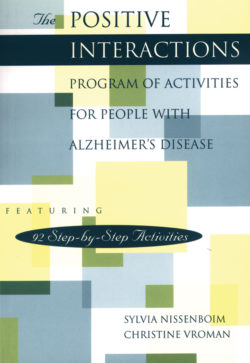
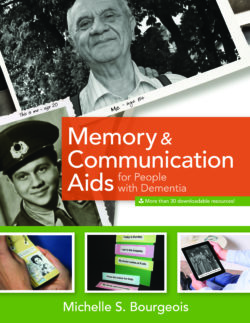
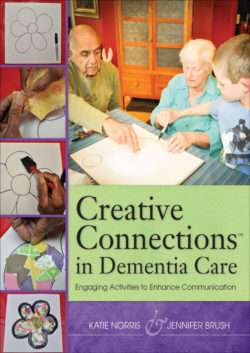
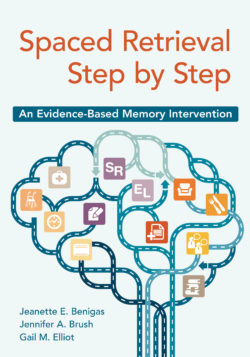
Administrator –
“[This] impressively organized and presented instructional guide… is an ideal and unreservedly recommended addition to personal, professional, community, and academic library Health/Medicine instructional reference collections in general, and Alzheimer’s and Dementia Caregiving supplemental studies reading lists in particular.”
—Midwest Book Review